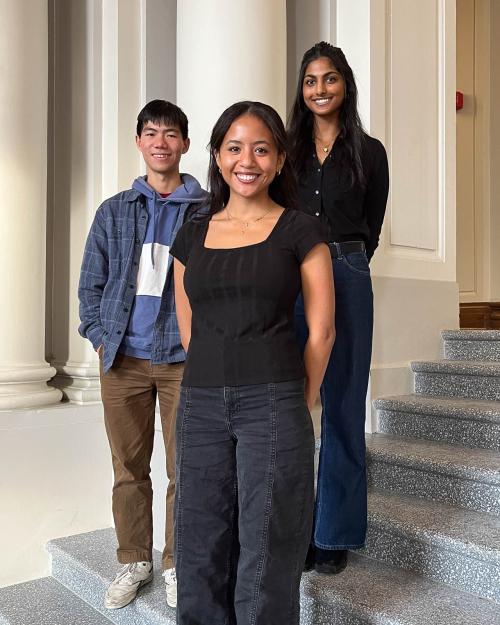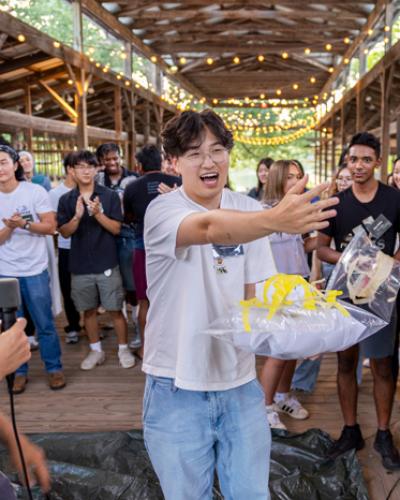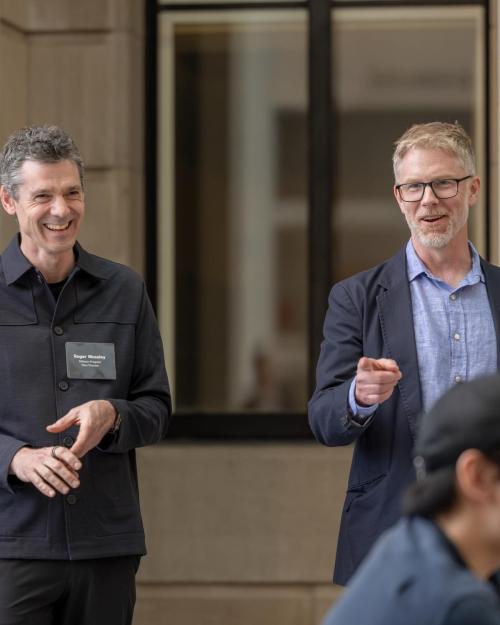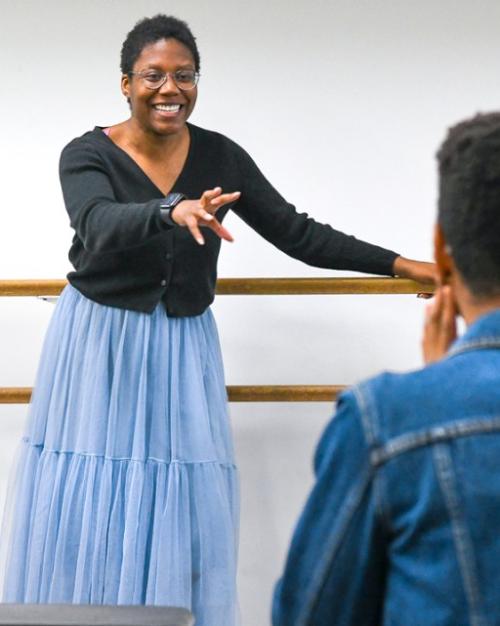On June 2, the Ithaca theater organization Civic Ensemble will premiere “Fertile Grounds,” a community-based play that invites the audience onto a fictional farming cooperative involving people of color to explore the relationship of grief, community and wellness.
The opening marks the continuation of the ensemble’s longstanding collaboration with Cornell – and the professional directing debut of Carley Robinson ’20, who began working with the ensemble as an undergraduate in the College of Human Ecology.
Civic Ensemble’s plays bring community members together over 18 to 24 months to create a play around a topic that is meaningful to them. In the case of “Fertile Grounds,” written in collaboration with playwright Katie Ka Vang, the topic revolves around the question, “What does it mean to be well?”
Each Civic Ensemble production begins with story circles and community workshops and culminates in public performances and dialogue. First-year students from the College of Arts and Sciences’ (A&S) Milstein Program in Technology and Humanity have been working on a digital storytelling project to document the development process.
“This is our first Black, Indigenous and people of color-only production in terms of the cast, and almost everyone on the creative team is BIPOC,” said Robinson. “It feels incredibly special to have been nurtured and mentored by this company, and now to be entrusted with this story of land, of healing.”
Robinson came to Cornell to study human development, with a focus on adolescence. A chance encounter with Civic Ensemble, which describes itself as a “home for theater that explores the social, political and cultural issues of our time,” sparked her interest in applied research and made her a passionate advocate for engagement with the local community.
“It completely reshaped the way I thought about theater, and thus the world,” she said.
Robinson’s connection with Civic Ensemble started in her sophomore year, when she took a class that required community engagement. Because of her previous theater experience, she began working with the ensemble’s ReEntry Theatre Program, which enables formerly incarcerated people to learn theater skills and develop scenes to tell their stories, process their experiences and change perceptions of the criminal justice system.
“As a community-based organization, Civic Ensemble loves partnering with Cornell stakeholders to bridge campus and community connections, creating pathways for students, faculty and staff to meaningfully engage with and support work happening in the local community,” said Julia Taylor, Civic Ensemble’s executive director.
With support from Cornell’s David M. Einhorn Center for Community Engagement, Civic Ensemble has collaborated with the university on a number of projects. These include the Theatre and Climate Change class, which was supported by an Engaged Curriculum Grant and involved Cornell faculty members Sara Warner, associate professor of performing and media arts (A&S); Toby Ault, associate professor of Earth and atmospheric sciences in the College of Agriculture and Life Sciences; and Sarah Chalmers, a Civic Ensemble co-founder and now a visiting lecturer in the Charles H. Dyson School of Applied Economics and Management in the Cornell SC Johnson College of Business.
“The Einhorn Center has been proud to support many connections between Civic Ensemble and Cornell over the years,” said Basil Safi, the center’s executive director. “The variety and evolution of work we’ve seen – and continue to see – is the epitome of how high-quality community-engaged learning and reciprocal partnerships that address community-identified needs can connect back to the academic strengths and mission of the university.”
After her class ended, Robinson kept working with the ensemble, this time through the Einhorn Center’s Community Work-Study Program, which enables students to use federal work-study funding for positions with local nonprofit organizations, schools and municipalities. In addition to helping with ReEntry, she also got involved with the ensemble’s theater in education programs, where she was inspired by the potential of applied theater techniques to empower young people and inspire social change.
“Learning about applied theater changed the way that I thought about research, and it raised huge questions for me around behavior versus attitude,” Robinson said. “What has to come first to create change?”
To start finding answers, Robinson became a PRYDE Scholar, part of a group of undergraduates who learn about youth interventions in collaboration with experts through the Bronfenbrenner Center for Translational Research’s (BCTR) Program for Research on Youth Development and Engagement. In 2020, she received the Robinson-Appel Humanitarian Award from the Einhorn Center for her work with Civic Ensemble and its ReEntry Theatre Program. Now, in addition to volunteering at Civic, she’s back at Cornell, working as a research coordinator in BCTR.
Robinson said that translational research – an approach at the heart of the BCTR and Cornell Human Ecology – and applied theater both focus on social change, in collaboration with the community.
“Everything can be drawn back to the things that I learned in human development,” she said. “How does a human being thrive in the world? I got an education in that, and I learned how to ask that question in every space that I occupy.”
“Fertile Grounds” runs June 2-11 in various Ithaca locations. For more information and to purchase pay-what-you-can tickets, visit the Civic Ensemble website.
Emily Groff is assistant director of communications in the College of Human Ecology.





